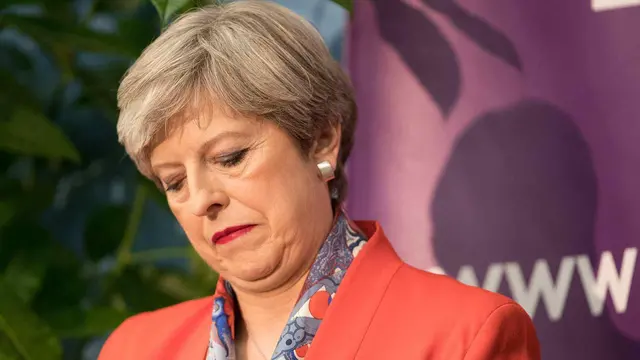BEIJING, Dec. 18 (Xinhua) -- The United States and Cuba announced Wednesday that they have agreed to restore diplomatic relations, in a move to end more than half a century of estrangement between the two countries.
Washington severed ties with Havana in 1961, shortly after former Cuban leader Fidel Castro launched a revolution that toppled a U.S.-friendly government.
The two countries have been at loggerheads ever since, with tensions boiling over on a number of occasions, most notably the Cuban Missile Crisis and the Bay of Pigs Invasion in the early 1960s.
Wednesday's announcement came one day after U.S. President Barack Obama and Cuban leader Raul Castro agreed in a phone call on a breakthrough prisoner exchange, the opening of embassies in each other's countries, and an easing of some restrictions on commerce.
HISTORIC MOVE IN U.S.-CUBA RELATIONS
Simultaneous televised broadcasts, from Washington and Havana, served to highlight the historic decision to normalize ties following 50 years of frosty, often hostile relations.
"We will end an outdated approach that for decades has failed to advance our interests," Obama said in an address at the White House. "Instead we will begin to normalize relations between our two countries."
The president said he had instructed Secretary of State John Kerry to initiate talks with Cuba on restoring diplomatic relations with the island nation, adding that the U.S. will reestablish an embassy in Havana and high-ranking officials will visit Cuba.
The U.S. is also taking steps to increase travel, commerce and the flow of information to and from Cuba, said Obama, noting that he also looked forward to engaging Congress in discussion about lifting the U.S. embargo against the country.
These changes will "begin a new chapter among the nations of the Americas," and move beyond "a rigid policy that is rooted in events that took place before most of us were born," the president said.
While confirming the historic move, Castro also insisted that differences between Cuba and the United States be resolved through "negotiation" and stressed Cuba will defend its main principles.
"We have agreed to restore diplomatic ties, though that doesn't mean the main issue, which is the economic, trade and financial blockade, which causes major damage and must cease, has been resolved," Castro said in a TV broadcast timed to coincide with Obama's address.
He urged Obama to remove all obstacles that restrict the normal links between the two nations, and to recognize that there are "differences" in both countries by "concepts of democracy, human rights and government".
"We must learn the art of living together in a civilized way with our own differences," said Castro.
News of the rapprochement followed an exchange of prisoners between the two countries earlier in the day.
U.S. contractor Alan Gross, who served five years in a Cuban prison on charges of illegally importing communications equipment with the intent to incite unrest, was released and flown back home early Wednesday, as was an important U.S. intelligence agent that has been imprisoned for 20 years.
In the meantime, the remaining three agents of the Cuban Five, who had been imprisoned in the United States, were released and returned to their home country. Before that, two other agents of the group were freed in 2011 and 2014 after serving about 13 years and more than 15 years behind bars, respectively.
LEGACY IN U.S. FOREIGN POLICY
For Americans, emotions are running high on the issue, with many applauding the move but many others, such as Republicans and a few Democrats, slamming the decision.
Among analysts, some believe that it is time for a normalization of relations while others contend the Cuban government needs to make changes.
"Obama is normalizing relations with Cuba because the U.S. sanctions have been a complete failure. The president hopes that he can produce better results through bargaining and negotiation," Brookings Institution's senior fellow Darrell West told Xinhua, adding that Obama is shifting his focus to foreign policy in the last two years of his time in office.
Meanwhile, some analysts believe the U.S.-Cuba normalization will hit a number of roadblocks.
The Heritage Foundation's senior fellow Mike Gonzalez said in a conference call for journalists that the incoming Republican-controlled Congress will react to stop the president from implementing the sweeping changes, adding that Congress has a number of tools at its disposal.
"(Congress) can put a hold on whatever ambassador is appointed (to serve in Cuba), it can...prevent funds from being spent on an embassy," he said, citing examples.
In the same call, the Heritage Foundation's research associate Ana Rosa Quintana said the recent Republican sweep in the midterm elections showed that Americans are not happy with Obama's foreign policy.
She contended that the Helms-Burton Act, which tightened the trade embargo against Cuba and ratcheted up restrictions on Americans traveling to the country, is unlikely to be repealed by the incoming Republican-controlled Congress.
As such, Obama will use executive authority to relax some restrictions on banking, certain trade and travel to Cuba.
Analysts said Obama will undoubtedly leave a legacy for the U.S. foreign policy by opening a "new chapter" in U.S.-Cuba relations in the last two years of his tenure.
Although November's midterm elections were a victory for Republicans, who seized control of the Senate and added to their majority in the House, the results appear to have only accelerated Obama's use of regulatory, diplomatic and executive authority.
Wednesday's announcement follows decisions by the president to defy Republicans on immigration, climate change policy, the regulation of the Internet and nuclear talks with Iran.
Obama's adjustment of the U.S. policy toward Cuba aims to show his leadership in pushing for a "more positive and constructive" relationship with the island nation, Latin America and the world at large, said Ted Piccone, deputy director for foreign policy at Brookings.
 简体中文
简体中文

